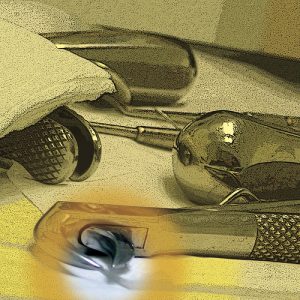 Toothache is one of the most terrible forms of pain known to man. It just seems like the pain radiates from the very center of each tooth. So why does toothache develop, what can you do to prevent this kind of pain form emerging and what can you do if you’re suddenly struck with this form of pain?
Toothache is one of the most terrible forms of pain known to man. It just seems like the pain radiates from the very center of each tooth. So why does toothache develop, what can you do to prevent this kind of pain form emerging and what can you do if you’re suddenly struck with this form of pain?
Why do you get toothache?
Before delving into the specifics, it’s important to discuss first the anatomy of the tooth. The tooth is composed of three layers – the enamel, dentin and the pulp regions. The enamel is what protects your tooth from friction, mechanical force and other substances while the pulp region is where the nerve endings and the blood vessels are housed. It’s common knowledge that when nerve endings are irritated, pain ensues, and that is the reason for why the enamel region exists. However, if there is any damage to the enamel, substances and microorganisms are able to reach the pulp region and cause pain.
Teeth sensitivity is due to microscopic breaks in the enamel region which allow minute amounts of your foods and drinks to reach the pulp, leading to the sensation of quick, stabbing pain. On the other hand, tooth decay, which is caused by a single cavity which is allowed to bury deep into your teeth, also involves the migration of bacteria to the pulp region to induce an infection. Hence, tooth decay leads to the development of more intense and sustained pain.
How can you prevent getting toothaches?
The only way that you can stay away from having to endure toothaches is to prevent the development of various dental conditions which are known to cause pain. Luckily, that is not a very difficult thing to do because you can ward off most dental disorders just by practicing good dental hygiene, which includes the trio of brushing, flossing and rinsing with mouthwash. Of course, some dental conditions, like tooth sensitivity, are different in that they are actually caused by vigorous tooth brushing. According to Dr. Ballard and Buckhead Dental Partners, the method of brushing, which is oscillating-rotating, is more important than the force you exert.
What should you do when you get toothaches?
You can take OTC anti-inflammatory pain relievers which can help minimize the discomfort if you cannot get to Buckhead Dental Partners just yet. Don’t place aspirin on the gum next to the tooth like some people would tell you since this does not alleviate the pain and can burn your gums. You can also try gargling with warm water to rinse the affected part and then floss so that you can dislodge any fragments of decayed tooth which may be causing the pain by exerting pressure on your tooth.
If you are experiencing any tooth pain, schedule an appointment with Dr. Ballard and Buckhead Dental Partners in Atlanta, GA as soon as possible.




